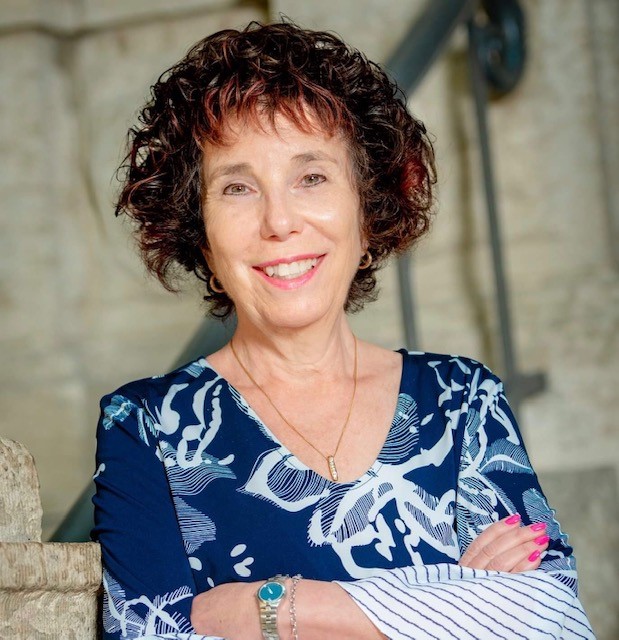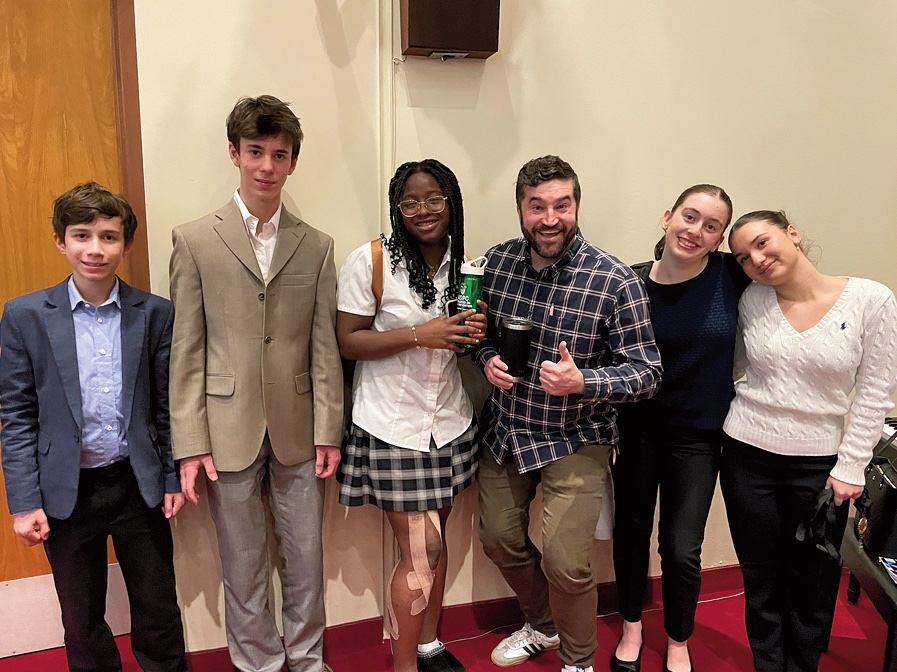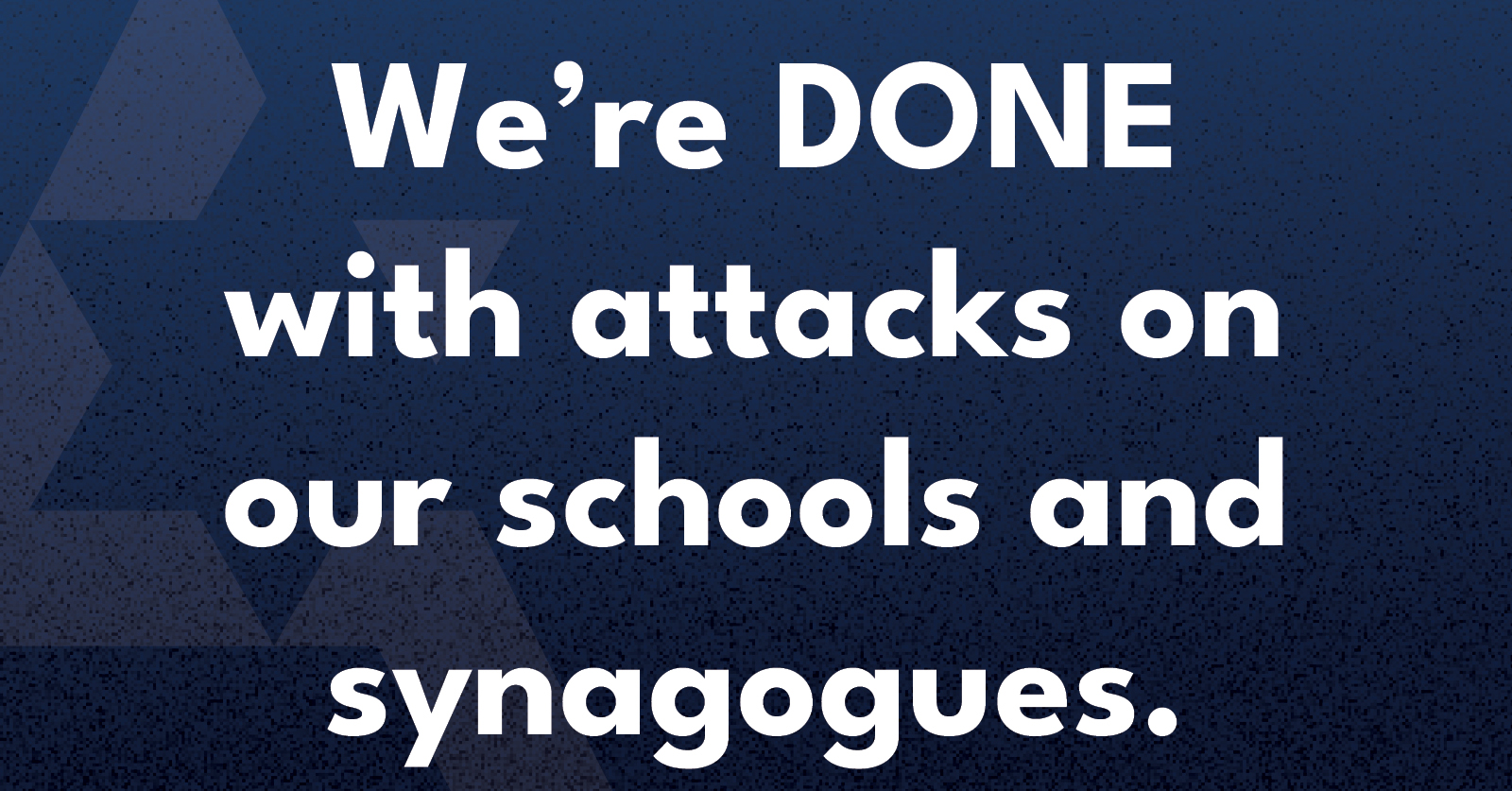Local News
Winnipeg Jewish community organizations take steps in reaction to spread of Coronavirus
 By BERNIE BELLAN
By BERNIE BELLAN
(Posted March 13, 5:00 pm, updated March 14, 15, 16, 17) As governments, businesses, and organizations throughout the world assess just what steps are necessary to take in order to halt the spread of the Coronavirus (COVID-19), Jewish organizations in Winnipeg have also begun to adopt new measures in reaction to the extraordinarily swift spread of the pandemic.
Posted Tuesday, March 17
2020 JFM Luncheon in support of the Women’s Endowment Fund cancelled
It is with profound disappointment that we announce the cancellation of the 2020 Jewish Foundation of Manitoba Luncheon in support of the Women’s Endowment Fund.
Due to an abundance of caution concerning the COVID-19 virus, the Foundation feels it is our responsibility to be proactive, and conscious of the safety and well being of our community during this unprecedented time.
We would like to thank all of our generous sponsors and ticket holders for your gracious support! In the coming days, JFM staff will be reaching out to everyone who has purchased tickets or given sponsorship.
48th Annual Rady JCC Ken Kronson Sports Dinner Cancelled Due to Ongoing Coronavirus Pandemic
In an effort to mitigate any potential spread of the Coronavirus (COVID-19) illness, the 48th Annual Rady JCC Ken Kronson Sports Dinner has been cancelled. It was scheduled to take place Tuesday, May 12, 2020, at the RBC Convention Centre Winnipeg.
“The health and safety of our supporters and our community is paramount,” said Al Greenberg, 2020 Rady JCC Sports Dinner Committee Chair. “While we are all extremely disappointed, this was a simple decision to make. We must do our part in the global fight of curbing this pandemic.”
This will mark the first time in its 48 year history the annual fundraiser will not be held.
“We will be directly contacting all of our ticket purchasers and sponsors in the coming days to let them know what their options are going forward,” said Greenberg. “For now, we ask everyone to stay safe and maintain social distancing.”
The event was to feature NHL Commissioner Gary Bettman as its keynote speaker with Carol and Neil Duboff as this year’s Sports Dinner Honourees. Title Sponsors were Paul Winestock and Brendan Rodgers of RBC Wealth Management Dominion Securities.
The annual event – the largest of its kind in Manitoba – raises funds to enable the Rady JCC to provide scholarships, camperships, and community service programs for those in the community who need them most regardless of financial situation, ability, age, or cultural background.
Posted Monday, March 16 4:30 pm:
In the latest developments the Rady JCC and the Shaarey Zedek have now shut down operations completely – except for the day care operations run by the Rady JCC. Here are emails received from Rob Berkowits, Executive Director of the Rady JCC and from the Shaarey Zedek:
I am sharing information about the ongoing status of the Coronavirus (COVID-19) pandemic as it relates to all Rady JCC operations going forward. Please remember the health and safety of our Rady JCC members, stakeholders, and staff must be our top priority with every decision our Board of Directors make.
Over the last 72 hours, multiple new cases of COVID-19 have been identified throughout Canada including here in Winnipeg. The Manitoba Health Minister is suggesting that citizens do not partake in large public gatherings where the risk of COVID-19 spread can increase. We are also anticipating the provincial and federal governments to make announcements shortly calling for the closure of all non-essential services.
As of 3:00 p.m. Monday, March 16, 2020, we have shut down all Rady JCC operations for the foreseeable future. All off-site Rady JCC programming is cancelled/postponed until further notice as well.
From the Shaarey Zedek:
In consultation with staff and our Board Executive, it has been decided that as a precautionary measure we will be Closing Congregation Shaarey Zedek effective immediately for all Services and Programs scheduled to be held in our synagogue.
The building itself will remain open but operating on a limited staff basis. The reduced operating hours for the building will be 7:30 a.m. to 6:30 p.m. Our Rabbis and Lay Clergy will be here for consultation and can be reached as follows:
Posted Friday, March 13:
On Thursday, March 12 the Jewish Learning Institute (of Chabad Winnipeg) issued an email announcing that an event that was to take place on Wednesday, March 18, a “Challah Bake”, was now being taken “online” instead.
The email stated that “In light of the recent developments regarding the Coronavirus (COVID-19), and following recommendations from Canada.ca guidance documents, we have decided to take the Challah Bake online.
“The event will be streamed live at the original date and time, at 7:00 pm on Wednesday, March 18. Now everyone can participate from the comfort and safety of their homes. All ticket holders will receive an email on Wednesday morning with a link to the live feed.”
On Friday, March 13, the Jewish Heritage Centre of Western Canada announced that the Kanee Lecture, which was to delivered by Daniel Gordis on May 13, has been postponed until the fall. JHCWC Executive Director Belle Jarniewski explained that Gordis is currently in Israel and, as flights from Israel have been drastically curtailed for the time being, the decision was taken to postpone the lecture.
The Jewish Federation has been in constant contact with Jewish organizations – as events have been fast moving. One of the first cancellations announced by the Federation was the March of the Living, which was scheduled to take place beginning April 21 in Poland. Elaine Goldstine, CEO of the Federation, said that she was sad to have to tell the 24 students who had signed up from Manitoba that this year’s march had to be cancelled.
In an email sent to this paper Friday morning March 13, Goldstine wrote that “We do have a plan moving forward. The campus ramped up cleaning procedures as well. We sent a email to our staff and to our beneficiary agencies about staying home if sick, wash hands more frequently, etc . Campus has provided disinfectant wipes for all offices.”
Later in the afternoon Goldstine issued an email, which said in part: “I want to assure you that we are taking proactive measures to ensure that the Asper Jewish Community Campus and the facilities contained herein are safe, clean and that there are protocols in place to ensure that they stay that way. There are currently no plans to close the facilities to visitors, however, certain programs and events may be rescheduled or canceled. Updates pertaining to community programs or events will be communicated by their respective planners.”
The Shaarey Zedek did not cancel Saturday services, although the synagogue did issue this notice:
Services
We are still planning for Shabbat Services (including our Family Service) to be held here tomorrow morning and for the immediate future. There will be some modifications during the services to reduce personal contacts including holding the services in the Sanctuary which provides for more social distancing (more room to spread out). We have created new copies of our Shabbat Siddur. We will provide brand new Kippot for those that require them and ask that you keep them for your personal use. Do not return them to the basket! Daily Minyans are still being held.
Shabbat Kiddush
Services will be followed by our traditional Kiddush as usual. However, there will be some modifications, most notably being that our serving staff will be responsible for providing the food as opposed to the usual practise of everyone helping themselves. This provides an extra layer of protection for each one of us.
The Rady JCC has canceled all cultural programming. On Friday afternoon, March 13, Rob Berkowits, Executive Director of the Rady JCC, issued the following email (abridged): Today, we have made the correct decision to postpone/cancel all events effective now until April 28, 2020. As of right now, the Fitness Centre will remain open.
The Winnipeg Jewish Theatre has postponed its next production, “Narrow Bridges”, which was scheduled to open March 28. It is now slated to run next year.
We contacted Faith Kaplan of the Adas Yeshurun-Herzlia Congregation to ask whether the Caroline Glick lecture, scheduled for May 4, has either been postponed or canceled. As of the time of writing this, no decision has been taken.
As further updates occur, we will post them to this website.
Posted March 14: We have been advised that a program planned for Sunday, March 15 celebrating the legacy of Jews & chess in Winnipeg, which was to have taken place in the Multipurpose Room of the Asper Campus has now been canceled.
In response to a query sent to a spokesperson for the WRHA asking about any measures that might have been implemented at the Simkin Centre (as well as any other PCH’s under the supervision of the WRHA, we received the following response:
Our WRHA Long Term Care program is in regular communication with all Long Term Care facilities in Winnipeg. We connect regularly to remind and reinforce with all these facilities to follow the outbreak management and influenza management protocols that are already in place as standard operating procedures in response se to COVID-19.
In addition, we have enacted Incident Command in Long Term Care which includes regular conference calls and communication with all facilities to ensure all facilities remain fully up to date on COVID-19 information, and to promote a consistent approach in their address of concerns related to COVID-19.
Visitor restrictions are in place as per Public Health direction. Group recreation activities are also being limited in accordance with the social distancing guidelines. Staff screening continues to take place through our regional occupation health officers.
Staff are being reminded to follow standard infection prevention and control protocol (such as regular hand washing, and staying away from work when sick) to promote the safety and health of the residents we serve.
Updated Sunday, March 15: We just received an email from Laurie Cerqueti, CEO of the Simkin Centre, asking me to let readers know they do not want visitors there.
The Gwen Secter Centre had originally planned to remain open and continue offering programming – to members only. But, on Sunday, March 15, we received the following email from Gwen Secter Becky Chisick, informing us of a change in plans: “
n response to COVID-19, Gwen Secter Creative Living Centre will be cancelling all programming. The Wednesday program will be cancelled until after Passover. All exercise programs, concerts and social programs are cancelled until April 6 (for now). We will reassess and provide updates as we have them Operating hours will be reduced in order to limit traffic and third party services. At Gwen Secter we are talking all necessary precautions to ensure everyone’s health and safety.
“The kitchen will continue operations. Kosher Meals on Wheels will run and we will continue to accept your Passover catering orders.
“Our staff will still be in the building and available to answer questions.
“Thank you & be well!”
Updated March 16
The Winnipeg Jewish Theatre announced that its upcoming production, “Narrow Bridge”, which was slated to open March 28, has been postponed until next year. Here is a portion of the WJT announcement:
“In order to contribute to public health efforts, we have decided to cancel the upcoming run of Narrow Bridge by Daniel Thau-Eleff and move its world premiere into our 2020-2021 season. Narrow Bridge will replace the previously announced production of Trayf by Lindsay Joelle from March 4 – 14, 2021.
“During this time our administrative operations will continue, with staff working from home where possible. We will continue to check our office voicemail and email on a daily basis Monday – Friday. The box office will be contacting all ticket holders for Narrow Bridge to ensure that they are aware of the cancellation.”
Sunday, March 15, Gray Academy issued the following notice on its Facebook page: “Monday, March 16, will be our last day of in-class learning until Passover Break.
“Tuesday, March 17 and Wednesday, March 18 will be In-Service days. Teachers and staff will use this time to put plans and processes into action for remote learning for all grades.
“Remote learning will begin on Thursday, March 19 for all grades.”
Local News
Cheryl Hirsch Katz, Jewish Child and Family Service’s longest serving staffer, set to retire at end of the month

By MYRON LOVE “I loved working at Jewish Child and Family Service,” says Cheryl Hirsh Katz, who is due to retire at the end of June. “I have always appreciated the warm and welcoming atmosphere here. I feel that the people working here are my extended family. I am going to miss my colleagues”.
“I have derived great satisfaction over the years to have been able to help many people in our community of all ages through my work at JCFS,” she continues.
After 44 years at the agency, Katz, the longest-serving member of the staff, was given an appreciative send-off at the JCFS’s recent (June 23) Annual General Meeting at the Shaarey Zedek Synagogue.
The daughter of Art and Bess Hirsh, Cheryl grew up in Garden City. She attended Peretz School, then Jefferson Junior High and Garden City Collegiate. She joined the staff of JCFS in 1981, shortly after receiving her Bachelor of Social Work degree.
She earned an MSW in 1990.
“I chose to become a social worker,” she recalls, “because I always wanted to be able to help people.”
Katz was originally hired by JCFS to work with newcomers. After a couple of years, she was given responsibility for looking after the needs of older adults.
“I really enjoyed working in older adult services,” she says. “That is where I spent the bulk of my time at JCFS.”
After ten years as a case worker, she was promoted to a supervisory role. Later, she was also given responsibility for mental health and addictions programming and settlement services, while keeping the older adult files under her purview.
“As a supervisor, I wasn’t directly involved with individual clients,” she points out. “I was more involved with programming. Among the programs for seniors we organized were – for example – sessions on elder abuse, digital storytelling and memory loss.”
She notes that one of the trends she has seen over the last 44 years is that people are living longer and living in their homes longer. A lot more of our clients are living well into their 90s,” she observes. “We have had to continually expand our staff and the services we provide in order to accommodate the growing demands of an aging population.”
She also spoke of the mental health needs of seniors and aging Holocaust survivors.
She says that she has mixed feelings about leaving JCFS. “After so many years working full time, I am going to have to create a new routine,” she comments.
She notes that, now that she is retired, she will have more time to spend with her parents – who are in their 90s.
And then, there are the two dogs to look after. “I will have time now to try new activities,” she says. “ I might learn to play mah-jong.”
She speaks about maybe doing some traveling – although her husband, Murray, is still working full time.
(She and Murray have one daughter, Farah.)
“Retirement may also include some volunteering,” she adds.
It is quite likely, she will be continuing her association with JCFS but in a volunteer capacity.
Local News
Gray Academy students shine in provincial, national debating competitions

By MYRON LOVE It has been another good year for Gray Academy’s high school students who participated in provincial and national debating competitions. The best results were recorded by Grade 9 student Noa Mednikov, who finished fourth overall nationally, fourth in interpretive reading, and fifth in persuasive speaking at the junior National Public Speaking Championship in early May in Vancouver.
Last October, in the Junior Provincial British Parliamentary Championship – which was held at St. John’s-Ravenscourt – Noa and her partner, Raya Braunstein, finished third as a team while Raya placed third in individual debating.
Their fellow Grade 9 student Maxim Moscalenkov tied for first in persuasive speaking in Vancouver, while the Gray Academy team of Gabe Tapper and Aaron Koplovich finished fifth. Aaron also finished fifth in his individual debate.
Earlier, in March, Maxim finished fifth in the Provincial Juniors debating competition, which was held at Balmoral Hall He and his debate partner, Nate Shenkarow, finished seventh among the teams entered. Last November, he and partner, Ethan Tenenbein, finished seventh in the Junior Prepared Tournament – just behind the Gray Academy team of Nate Shenkarow and Jack Kay.
At the senior high level in that competition, the team of Jacob Tenenbein and Jonah Novoseller finished fourth and Jacob was recognized as fifth best in an individual capacity. Jonah and Jacob also paired up to win the Asper Cup, which was held at their home school.
Jacob represented Manitoba at the Junior National Speech Championship in Vancouver in May and, last October, he and Grade 12 Gray Academy students Julie Krozkin and Daniel Bokser represented Canada at an international debating tournament in Bermuda.
Gray Academy’s debating program was introduced by Linda Martin in 2003. She also led the debating teams at Balmoral Hall. In 2011, Martin was succeeded by Gray Academy high school English teacher Andrew Kaplan.
“Andrew has done a wonderful job with the debating program” says Martin, who has a debating trophy at Gray Academy named in her honour, as well as a provincial trophy for best individual junior debater. “Over the years, Gray Academy students have done very well in many local, national and international competitions,” she adds.
About three weeks ago, this writer had the opportunity to sit down with Andrew Kaplan and six of the school’s top debaters while they discussed the benefits of learning how to debate. According to Noah Strauss – who competed in the Junior Provincials at Balmoral Hall in March, public speaking leaves him with a feeling of accomplishment.
“It’s a good skill set to have,” he observes. “It builds confidence.”
“A benefit of being able to debate is that you learn how to convince people that you know what you are talking about,” adds Maxim Moscolenkov.
Raya Braunstein notes that being able to debate is a skill that she expects to be helpful in many university courses which she may choose to take.
As Andrew Kaplan notes, the ability to express yourself has a great impact in whatever career you choose to pursue.
He points out that debating is compulsory at Gray Academy for all Grade 7 and 8 students – and students can continue debating as an option in the higher grades
Of course, competitive debating is not for everyone. For those students who opt to take that path, the journey begins with internal school debate competition – with the top debating teams and individuals qualifying for local tournaments and – potentially – beyond.
Andrew Kaplan reports that a small number of high schools in Winnipeg and southern Manitoba have active debating programs – including St. Johns Ravenscourt, St. Paul’s High School, St. Mary’s Academy, Garden City and Maples Collegiates in the Seven Oaks School Division, St. Maurice (a Catholic School), as well as Morden Collegiate and Dasmesh, a Sikh private school.
Kaplan expresses his appreciation to the Asper Foundation and an endowment spearheaded by the Kives Family for providing funding for the Gray Academy debating program – as well as the Andrew Slough Foundation – which was established by his friends in memory of the outstanding former Ravenscourt student debater and lawyer who passed away suddenly two years ago at the still young age of 38.
I am confident that our Jewish community can look forward to the continued success of Gray Academy’s star debaters and to the continual emergence of future stars as the times goes by.
Local News
Antisemitism has crept into grade school in Canada

Antisemitism in Canada has moved beyond protests and politics; it is now entering classrooms and altering how Jewish children see themselves functioning within them.
A a university student I have observed the experience of my younger brother in grade eight as a Jewish student. Over the past few months, his school has been at the center of several deeply troubling incidents that have made him feel unsafe in our parks, community, and even his school. Swastikas were drawn around the community, in parks and ponds. Additionally, an older man, who claims to be a pro-Palestinian influencer, stood outside his predominantly Jewish school wearing a keffiyeh, filming a video which then circulated between students on TikTok.
This same man later showed up to our local Jewish community center in keffiyeh to allegedly watch his son play basketball where my brother and many of his classmates go for their lessons, basketball games, and Jewish events. These moments made him and his peers feel watched and targeted just for being Jewish. Local political representatives condemned the incidents and raised awareness about antisemitism, but the fear among students didn’t go away. The feeling of being targeted for simply existing has been taught to my brother, something my parents had tried their hardest to escape from.
Most recently, my brother was chosen to represent his school at a regional science fair. When one of the judges arrived wearing a keffiyeh, he froze. For many, including my brother after the incidents he has faced, the keffiyeh represents a political message. But even more so for my younger brother, it is tied to the fear and intimidation he had already experienced. He felt nervous, distracted, and unsure of how to act.
This is not about silencing political expression. It is about a child who came to share his ideas and left feeling uncertain and afraid. It is about the atmosphere forming in Canadian schools, where Jewish students are being made to feel targeted and unwelcome.
His school made an effort to address the incidents, but the impact is lasting. Posts on social media, much can be very vague at times about inclusion cannot fully undo the feeling of being singled out. A kind word from a teacher does not erase the fear that builds when threats are left unspoken but deeply felt.
I am writing this as a sister who watched her younger brother lose a moment that should have been filled with confidence and pride. He deserved to feel safe. So do all Jewish students in this country.
Moving forward, schools must take concrete steps to protect all students. Antisemitism cannot only be addressed when it becomes violent or overt. It must also be recognized when it appears as intimidation, symbolic targeting, or political messaging that creates fear among students. Children should never have to question whether they are safe in their own classrooms or community spaces.
Events that are meant to support and celebrate students must remain focused on them. Individuals who feel the need to bring political symbols or messages into school grounds or children’s events should not be welcomed in those spaces. Schools must make it clear that their environments exist to support learning, safety, and inclusion, not to host agendas that can intimidate or isolate students.
Administrators and educators must develop clear guidelines for identifying and responding to antisemitic behavior in all its forms. This includes strengthening security measures, offering ongoing staff training, and engaging directly with Jewish families to understand their concerns. Inclusion is not a one-time statement. It is a responsibility that must be reflected in everyday decisions and actions. No child should ever feel unsafe or unwelcome because of their identity.
The author is a Campus Media Fellow with HonestReporting Canada and Allied Voices for Israel who lives in Toronto.
